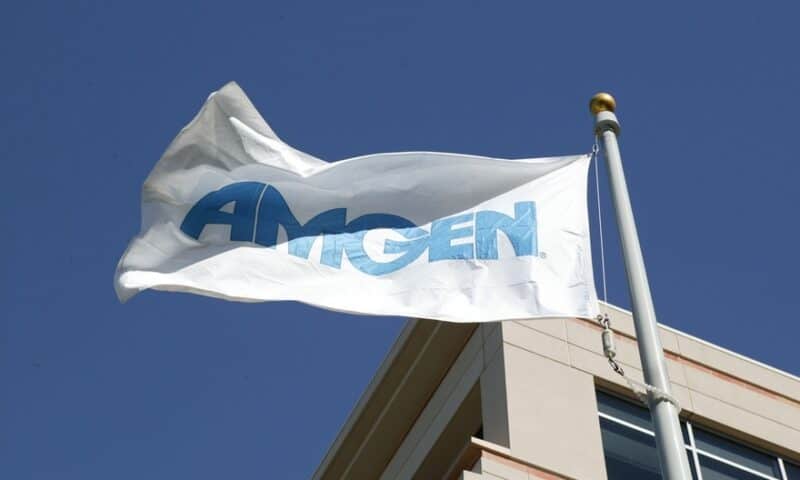Amgen is set to file for FDA approval of its KRAS G12C inhibitor sotorasib by the end of the year. The plan positions Amgen to become the first company to win approval for a drug against the historically undruggable KRAS.
In recent months, Amgen has built the case for sotorasib in non-small cell lung cancer (NSCLC), dropping full phase 1 data in September before offering a glimpse at the phase 2 results weeks later. The readouts have suggested sotorasib shrinks the tumors of a significant minority of patients when given as a monotherapy, raising hopes Amgen can establish it as a new NSCLC treatment option and go on to achieve better results by combining it with other oncology drugs.
Amgen outlined the next steps for the program on Tuesday. The Big Biotech plans to seek approval of the drug by the end of the year. Amgen had previously said it would talk to regulators about the path forward and expected to start selling sotorasib next year.
The interactions with the FDA have secured Amgen some regulatory privileges. The FDA granted the drug breakthrough-therapy designation in the treatment of locally advanced or metastatic NSCLC patients who have a KRAS G12C mutation, as determined by an approved test, and have previously received at least one prior systemic therapy. Amgen is working with Guardant Health and Qiagen to develop blood- and tissue-based companion diagnostics.
Securing the breakthrough status sets Amgen up to benefit from a speedy review when it files for FDA approval of sotorasib. The FDA will assess sotorasib through its real-time oncology review pilot program.
The acceptance of sotorasib into the program provides an indication of the interactions Amgen has had with the FDA over the drug so far. The FDA only determines whether a drug is suitable for the program after reviewing top-line data. That decision is made in the days and weeks after the generation of the top-line results.
Upon acceptance of a drug into the program, the FDA arranges a teleconference to discuss details such as the pre-submission timelines. Six to nine weeks after the first interaction with the FDA, the applicant typically shares assorted parts of the marketing application, including top-line efficacy data and final reports of toxicology studies, as part of a pre-submission.
The materials inform a pre-submission meeting that the FDA may use to request additional analyses or raise preliminary questions. The applicant files the complete marketing application in the weeks after the meeting.
By engaging more pre-submission, the FDA expects to be in a better position to conduct an efficient review than if its assessment began from scratch upon the receipt of the complete application. Yet, the stated goal of the program is not to approve drugs faster. Rather, the FDA sees it as a way to get drugs to patients as early as possible while improving review quality and balancing the workload of the review team.
Even so, Amgen is on course to bring a KRAS drug to market ahead of its rivals. The next most advanced company, Mirati Therapeutics, planned a filing for approval in the second half of next year upon posting preliminary NSCLC data on a drug that targets the KRAS G12D mutation, not G12C like sotorasib, in October. The timelines suggest sotorasib could be approved by the time Mirati submits KRAS G12D inhibitor MRTX1133 for review by the FDA.

